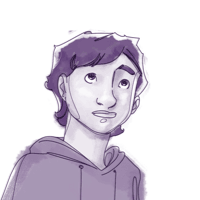Grief & Loss
About Grief
Grief takes on different forms. You might cry and become very sad or depressed. Or you might take on an adult role—becoming the ‘man’ of the house, as was the case with Bradley’s brother, Andy. You might go into denial and even lash out, or engage in risky behavior. These are normal emotions and responses—but it is important to acknowledge your grief and work through it with the help of others.
The National Alliance for Grieving Children is a wonderful source for support and guidance on how kids deal with grief. Below is a discussion from the Alliance of important things to know about grief:
Grief is real and comes in a variety of ways. While many assume grief only happens after someone dies, it is a process that can begin well before the loss of the loved one. Grief can include all the losses associated with illness:
- The loss of childhood
- The loss of the relationship between the family member and child
- The sense of “normalcy” is disrupted when someone is diagnosed, but also when the disease progresses and things change.
- Each time a new symptom, or a progression of a current symptom occurs, that is a loss for the person with ALS and for you. As each loss mounts, the relationship changes and may leave you confused, sad, and grieving.
- There can also be a sense of anticipation or expectation of the loss and the eventual grieving process.
“Things are so different, I feel like I lost them, but they are still here.”
This feeling is called anticipatory grief. It is difficult to describe, but basically even before your family member dies, you are experiencing loss. The losses include loss of the parent’s voice, hearing your dad’s funny jokes, playing with your grandfather, or going for long walks with your stepmom. These losses, while sometimes overlooked, are a very real part of the process and need to be acknowledged.
“[the machine] makes communication a lot harder…I think it’s just that it isn’t her voice. Because that’s all you really want to hear. And all you hear is that…machine. My dad’s old phone has my mom’s voice message on it. And we call so we can listen to it.” She is grieving the loss of her mother’s voice while her mother is still living. In effect, she is mourning the loss of what she knew as her “normal.” Her mother will eventually die, but the most important loss right now is the loss of the voice and the relationship attached to the voice. It is important to acknowledge incremental losses and anticipatory grief.
- How do you feel about the changes and/or progressions in your family member’s ALS?
- What are you grieving the loss of?
- What do you miss about your parent or loved one with ALS?
These conversations can be emotional and difficult. It’s important to know that your family member with ALS is also sad and grieving—and it can be helpful to share your feelings with one another. You may find it helpful to talk with a social worker, clergy, or mental health therapist to guide you through the process and find supports for working through the anticipation of death and loss.
When someone dies, you will be sad, angry, relieved, numb—any number of feelings.
These are all grief. Here are a few things to know about grief.
Grief is Normal
- The sadness of losing a family member does not just go away. It takes time, and during this time you will miss them in your own way. You do not ever “get over” a person’s death, but you can learn to live with the reality.
- Grief is not a problem we are trying to fix. It’s an experience you live with. A 16-year-old talks about how her mom died when she was 10 years old, but that even now—six years later—she misses her and cries sometimes. This is totally normal. Just like your family adapted to having ALS—the “new normal”—you are now adapting to the loss of that family member. Another “new normal.” Take the time to work through it and always, always talk to someone about it.
Your Grief Is Yours and May Be Very Different from Someone Else’s
- Just like your relationship with the person with ALS was different than anyone else’s, so is the way you feel after they die.
- Some children have a need to talk about the person who died and their feelings. This is perfectly fine. You can always talk about them—forever.
- Others might not talk about the person at all.
- Others might express their grief through art, play, music, or writing.
- How do you express grief? Do any of these sound like something you would do?
Grieving Can Make You Feel Alone and Misunderstood
- Sometimes adults avoid talking about the person who died for fear that doing so will make you feel worse. But, if they do this, it may make you feel as though talking about, or even expressing your grief, is not acceptable.
- Many children feel like they are the only person who has experienced the death of someone in their life, even though there might be other friends experiencing similar circumstances.
You feel grief at different times throughout your life
Many times, intense feelings of grief will last longer and come more often than we think they should.
Grief is a lifelong experience. You will experience grief on different levels and at different times throughout your lives.
When you get your driver’s license, score a touchdown, go to prom, or graduate from high school, you might think about that person you lost in very intense way. This extends into adulthood as well. My father died 14 years ago. Every time something major happens, I think of him and am so sad he is not here to see me. I can smile and know he would be proud, but that doesn’t stop my grief. Grief has no time limit.
Sharing your feelings openly can help to normalize this experience and help you find ways to deal with these powerful feelings that will come and go—and come back again throughout your life.
Grief sometimes is positive and can help you grow
You may not feel it now, but it can happen. Going through really, really tough times can make us grow as people. It does not take away from the sadness, grief, and loss, and it does not mean the loss was a good thing. But, going through this may make you feel more compassionate toward others and even value the importance of good friends in a way you did not before.
Grief is normal and can last for some time. Grief comes and goes, but it changes and lessens over time. But, sometimes grief becomes more than that, and it affects everyday life and impairs you. Everyone—no matter how old they are—can experience this type of grief, called complicated grief. Complicated grief may include the following:
- Loss of interest in daily activities and events, even those you used to love.
- Inability to sleep, loss of appetite, fear of being alone.
- Regression, or acting younger than you are.
- Excessively imitating the person with ALS who died.
- Talking about wanting to die to be with the person who has passed away.
- Avoiding peers and friends, even close ones.
- Extreme change in school performance or avoiding school.
If you are experiencing any of these, don’t hesitate to address it and get help. In addition to The ALS Association, your school, your religious home, a therapist, and many others in your community can provide support to you and help you move past the complicated aspects of grief while acknowledging that you may still grieve. You deserve to talk it out and get support. You can get through this time.


